RAYMOND — Two adjacent properties on one of the most sought-after waterfront areas on Sebago Lake are at the center of a legal battle between the town of Raymond, the Maine Department of Environmental Protection and Auburn businessman Donald Buteau and the company that controls his real estate holdings.
Last fall, the shoreland in front of the homes at 18 Fernwood Road and 28 Whitetail Lane was transformed in two weeks from its natural landscape of towering trees, native vegetation and rocky shore to an open landscape of at least 400 linear feet of riprap — rock — lining the shore.

Copy of an October 2021 photo of the property at 18 Fernwood Road on Sebago Lake in Raymond submitted by Department of Environmental Protection field agent Alexis Sivovlos. Town of Raymond

A photo of the same property at 18 Fernwood Road in Raymond taken in August 2021 before owner Donald Buteau started construction. Town of Raymond photo
Raymond town officials describe the transformation as an “egregious” violation of the town’s shoreland zoning ordinance and one of the largest violations of its kind they’ve ever seen.
The executive director of Lakes Environmental Association, Colin Holme, said it’s among the top one or two most serious violations in size and scope he’s seen in his 20 years with the environmental group.
“This is an order of magnitude violation, if not unprecedented in Maine history (it) is certainly up there with the largest ones of its kind,” stated Don Willard, Raymond’s town manager.
The U.S. Army Corps of Engineers confirmed to the Sun Journal that it is aware of the case and is also investigating whether there was a violation of its regulations.
The town of Raymond cited Buteau and the company that controls his real estate holdings, Management Controls LLC, for 15 violations of the shoreland zoning ordinance and unpermitted work, which Buteau is appealing. The Maine Department of Environmental Protection has also cited Buteau and contractor Robert Durant for violations of Maine’s Natural Resources Protection Act.
In addition to being the managing director of Management Controls, LLC, Buteau is listed as the president and CEO of Futureguard Building Products, an awning and door canopy products company headquartered in Auburn, and the CEO of Dough Masters, a wholesale pizza dough manufacturer in Auburn. He owns a home in Auburn as well.
Maine laws are very strict on what can be done with shoreland property. The alleged violations involve everything from the illegal removal of trees and vegetation along the shore to the illegal addition of stairs, expansion of a boat launch and the addition of a beach at the property.
Buteau and Durant each declined a Sun Journal request for an interview, citing the ongoing appeal. Buteau, through documents filed on his behalf, denies there were any violations, but states if there were any, they “resulted from errors and/or oversights by the contractor hired by Management Controls to do the work,” which is Big Lake Marine Construction in Casco.

An August 2021 photo of the property at 28 Whitetail Lane before construction was performed. Town of Raymond photo

The property at 28 Whitetail Lane taken Aug. 24, 2022, after construction. Daryn Slover/Sun Journal
The owner of the properties also stated there were erosion concerns on both properties and the work performed was a shoreline stabilization project and that it was the contractor’s responsibility to get all necessary permits from the town and the state.
Willard and Holme point out this isn’t the first time Buteau has been cited for shoreland and land use violations. Buteau and his wife were cited by the DEP in 2008 for violations of the Natural Resources Protection Act at a property they owned at 545 Cape Monday Road on Long Lake in Harrison.
DEP cited the Buteaus for not obtaining permits for work at that property, which included placing crushed rock along the shoreline, constructing a gazebo and backfilling stone walls within 75 feet of the lake. In 2009 the Buteaus signed a consent agreement and paid a fine of $2,534, completed restoration work and obtained after-the-fact permits for the work.
The resolution of separate allegations of zoning and land use violations with the town of Harrison for that same property took nearly 10 years to resolve in the courts, resulting in a $45,000 fine plus attorneys fees for the town.
Raymond officials won’t say how much in fines they are seeking in the Sebago Lake case, except to say the statute allows for a minimum fine of $100 per day per violation and a maximum of $2,500 a day per violation. With the case now approaching one year, that means the fine could be anywhere from a low of $547,500 to a high of $13,687,500.
In court documents, attorneys for Buteau and Management Controls refer to the proposed fine as “an extortionist, multi-million-dollar fine.”
THE ALLEGED VIOLATIONS
It was a field agent of the Maine Department of Environmental Protection who first alerted Raymond’s code enforcement officers to what she believed to be a shoreland zoning violation while out recreating on the lake, sending a photo of the scene. Within a week, officials for the town, the DEP and the Portland Water District were on site investigating. They say they quickly discovered there were no permits for the work applied for or approved by the town.
The Maine Natural Resources Protection Act limits the installation of riprap on an eroding shoreline to 100 linear feet. Raymond officials say that even if Buteau or his contractor had applied for permits to do the work, they would not have been granted, because the 400 or more linear feet of riprap now on the property — the equivalent of 10 school buses — exceeds the standards of state law.
The violations cited by the town of Raymond and issued on Dec. 16, 2021, against both properties include filling and earthmoving of more than 10 cubic yards without a permit. The town’s code enforcement officers say they found a “significant” amount of soil disturbance, concluding a majority of the buffer zone between the house and the lake had been stripped of vegetation and regraded. Town documents state fill was added to create the riprapped shoreline and that effective erosion and sedimentation controls measures were not used.

An excavator works on shore at 18 Fernwood Road on Sebago Lake in this photo taken October 2021. Town of Raymond photo
A related alleged violation cited the use of an excavator on land to do the stabilization of the shorefront without a permit, stating it should have been done from a barge, which, it states, the contractor had access to.
The town also says a second set of stairs to access the water was added without a permit; rock and sand below the normal high water line had been added or altered; a jetty was expanded without a permit from the town’s Planning Board; the shoreline and a boat launch were expanded or enlarged without a permit from the Planning Board; and a beach was constructed without a permit.
Another issue relating to soil erosion was cited. The town charged the owners with removing all existing vegetation less than 3 feet in height within 100 feet of the normal high water line, including shrubs and ground cover at one house. The citation states that all the vegetation less than 3 feet had been removed in a 1,250-square-foot area at the second house. Code enforcement noted the vegetation that was removed was stabilizing the shoreline and protecting the water quality of the lake.
Another violation alleges that a hot tub was built without a permit within 80 feet of the water, closer than the required setbacks.
Before and after photos were used to illustrate that at least 16 healthy trees had been removed within 100 feet of the water at one property and 14 from the other, creating an illegal opening in excess of 250 square feet under the shoreland ordinance.
Buteau first appealed the alleged violations to the town’s Zoning Board of Appeals, which the board denied. On Sept. 9, the law firm of Drummond Woodsum filed a complaint in Cumberland County Superior Court on behalf of Management Controls LLC and Buteau, seeking reversal of the Raymond Zoning Board of Appeals decision to deny its appeal of the notice of violation, among other demands.
The complaint calls 11 of the 15 violations “duplicative and repetitive” and states they are an attempt to punish Management Controls and boost the fines against the owner. It also states the second set of stairs and the hot tub were installed by the previous owner.
Also contained in the complaint is the allegation by Buteau’s attorneys that the town is biased against him because of statements made by various town officials that “Mr. Buteau is a wealthy man, that he needs to be punished, and that the town must make an example of him.”
The filing also indicates that Buteau’s company, Management Controls, is willing to do some restoration work in concert with Big Lake Marine this fall, but says work is being held up by the town’s insistence on its multi-million dollar fine.
Drummond Woodsum also represents Q-Team Tree Service, a subcontractor in the project.
An attorney from Bergen Parkinson representing Robert Durant and his company, Big Lake Marine Construction, issued the following statement to the Sun Journal in an email:
“Mr. Durant is focused on the development and implementation of a sound remediation plan that is approved by all parties (including the town of Raymond and the state of Maine) and is intent on implementing that remediation plan as promptly and efficiently as possible,” the statement said.

The property at 18 Fernwood Road in Raymond, owned by Management Controls and Donald Buteau, as seen Aug. 24. Daryn Slover/Sun Journal
NEIGHBORS REACT
The home at 18 Fernwood Road was built in 1999 and purchased by Buteau’s company in April 2019 for $3.4 million. It is a multi-level four-bedroom structure of 5,056 square feet and includes a nine-car garage. For tax purposes, Raymond values the 9.1 acres of land at $996,700 and the building at $1,653,000.
The two-acre property at 28 Whitetail Lane was purchased by Buteau’s company in September 2021 with a $1.4 million mortgage listed in Cumberland County register of deeds. According to municipal tax records, it was built in 1969 and is also a modern contemporary multi-story home with three bedrooms and 3,908 square feet. The land valuation is $919,600 and the building is valued at $581,700.
Over the summer, as the case moved slowly along, at least 250 residents signed a letter of support for town officials.
“Everyone is outraged,” said fellow lakefront owner Abel Bates, referring to his neighbors and other residents. “Everyone that we’ve talked to thinks that this is beyond the pale. It shouldn’t have been allowed, which is wasn’t, and it never should have been done in the first place.”

Concerned neighbors Abel Bates and Sylvia Sullivan want to see the shoreline restored at 18 Fernwood Road to its natural state on Sebago Lake. Daryn Slover/Sun Journal
The crystal clear waters of Sebago Lake allow you to see 30 feet in spots, a source of pride for Bates and his partner, Sylvia Sullivan, retirees who grew up fishing, boating and swimming in and around the giant body of water, just like many other Mainers.
It’s the clarity of Sebago that puts the glacial lake in a unique category of only 50 drinking sources nationwide that are so clean they are exempt from the Safe Water Drinking Act requirement to filter the water before treatment. Sebago Lake is also the water source for the city of Portland — about one in six people in Maine.
Town of Raymond officials insist that protecting the environmental integrity of Sebago Lake and its water quality is at the heart of its action against Buteau and his company under the state mandated shoreland zoning ordinance the town put in place in 1994.
The stated purposes of the Mandatory Shoreland Zoning Act include the prevention and control of water pollution, protection of fish spawning grounds, bird and wildlife habitat, and to anticipate and respond to the impacts of development in shoreland areas.
“Now what you’ve got is a stretch of sterile shore frontage that looks like — I don’t know — (something) that looks like a railroad. The only thing missing on the top is the rails,” said Bates, referring to the riprap shoreline in front of the two houses.
TOWN’S GOAL: ‘RESTORE THE SITE’
The case has been in the appeals process since March and the town cannot move forward in court until the appeals process has been completed. There is no deadline for the appeals process in Maine. Mediation talks have begun aimed at resolving the issues without going to court, which would be costly and even more time consuming for all parties involved.
The town of Raymond says its top priority in resolving the case against Management Controls and Buteau is securing an agreement to restore the properties to as natural a state as humanly possible.
In an email responding to a Sun Journal request for comment, an attorney for the town said they have worked with Management Controls to try to reach a reasonable resolution of the violations while ensuring the restoration of the property and protection of the environment.
“That remains the town’s goal and it will continue to try to reach an agreement with Management Controls about an appropriate restoration plan for the site and appropriate penalties for the violations.”
“You can’t recreate what was created a thousand or thousands of years ago,” said Town Manager Don Willard. “We want them to restore the site to its natural condition.”
Specifically, the town wants the riprap removed among other expectations. “They’re going to put in big rocks like you see all over the shoreline, intertwine big trees, brushes, shrubs, natural blueberries and bayberries and ferns that will look like a natural shoreline again,” said Willard.
Holme of the Lakes Environmental Association said that while he has several concerns about this case, one stands out the most. “My primary concern is that the restoration of the site is adequate, and that there is a long-term monitoring plan to make sure that whatever is proposed and ultimately implemented on the site is followed through, and that the site grows back, and it’s restored to something close to a natural system.”
“The stakes are huge,” Bates said. “Maine is a land of many, many lakes. And a lot of those lakes are in smaller communities that can’t possibly fight somebody with deep pockets.”
He added, “This isn’t just about somebody that’s wealthy. This is about something that should not have been done.”
The worst possible outcome of this case, Bates concluded: “Leaving it as it is. Just the way it is. And no fine.”
Send questions/comments to the editors.



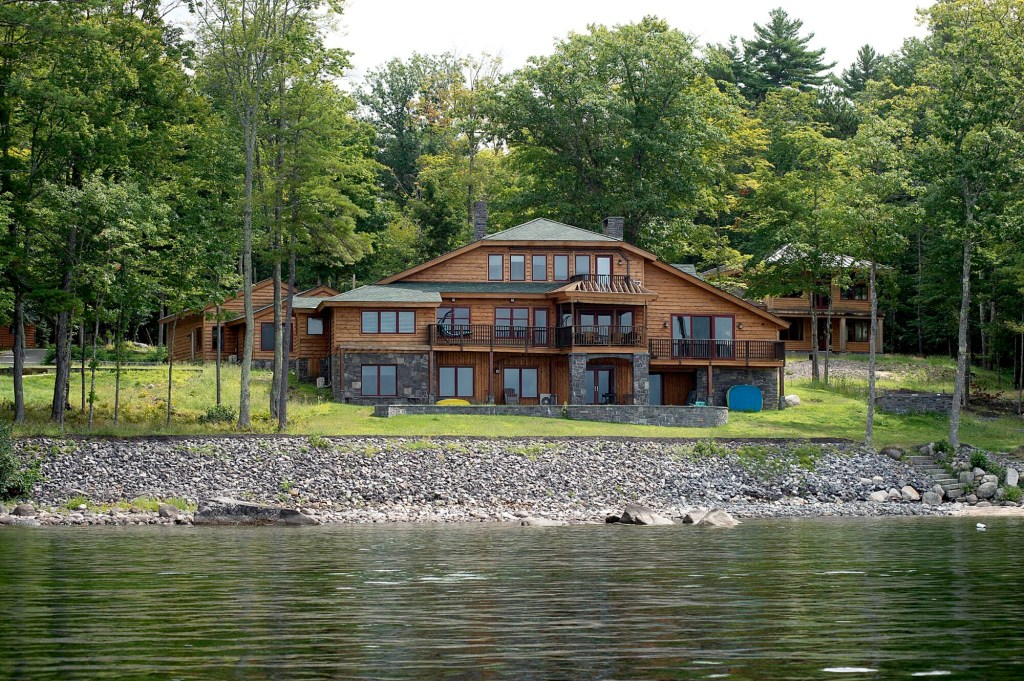
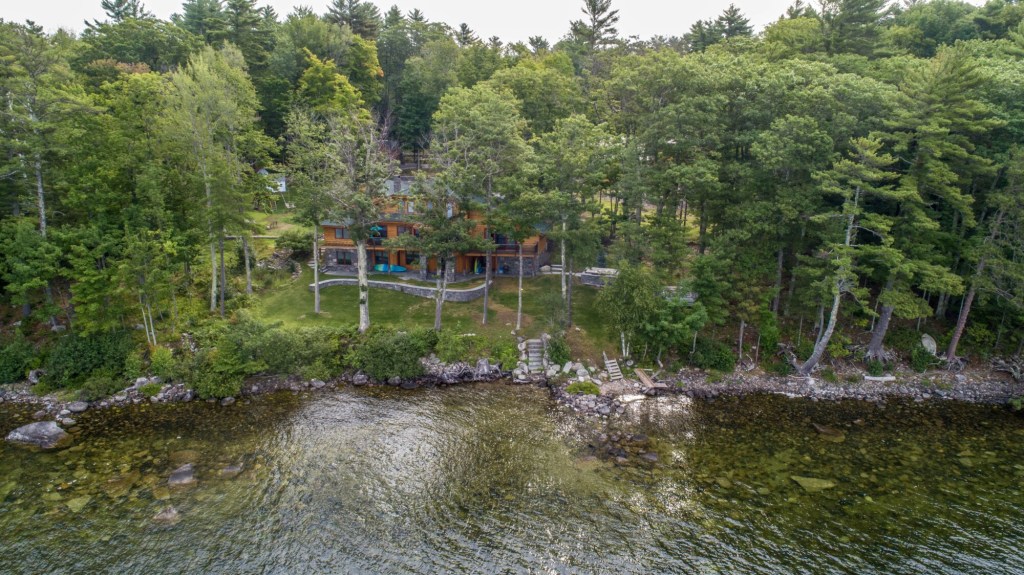
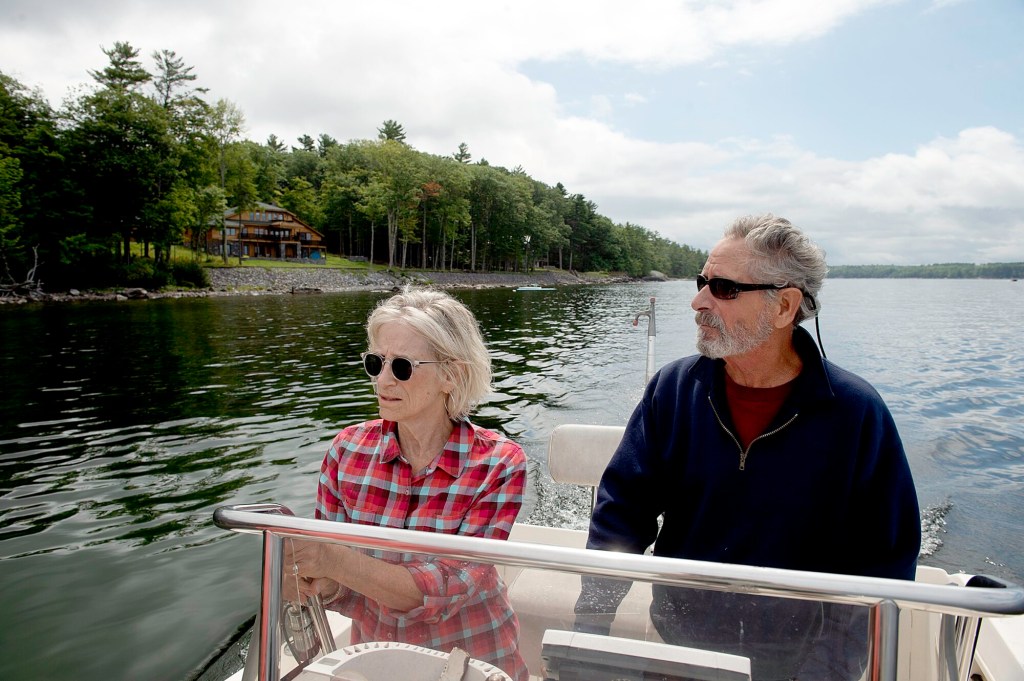
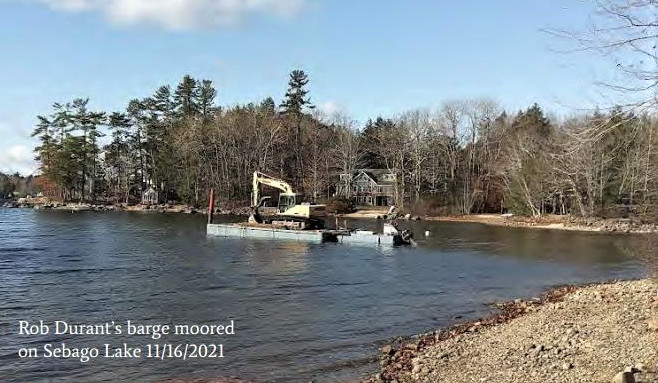

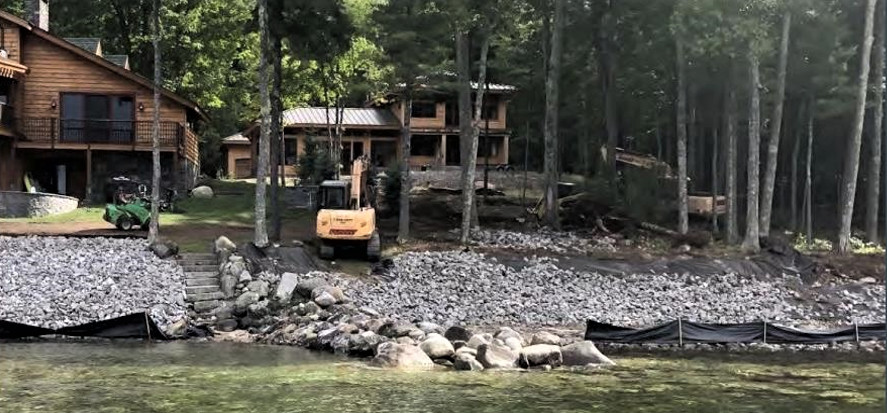
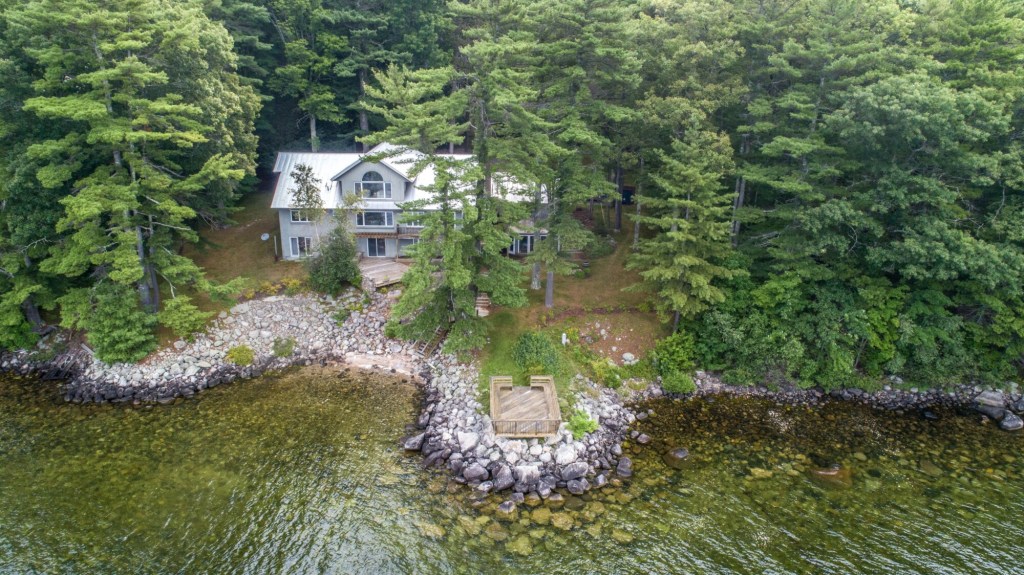
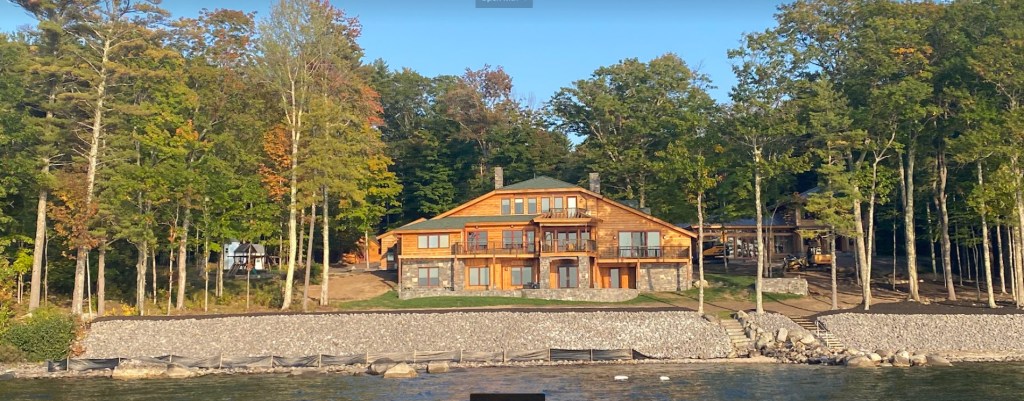

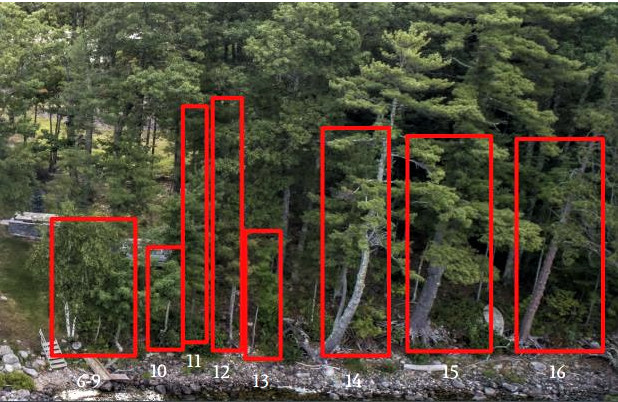
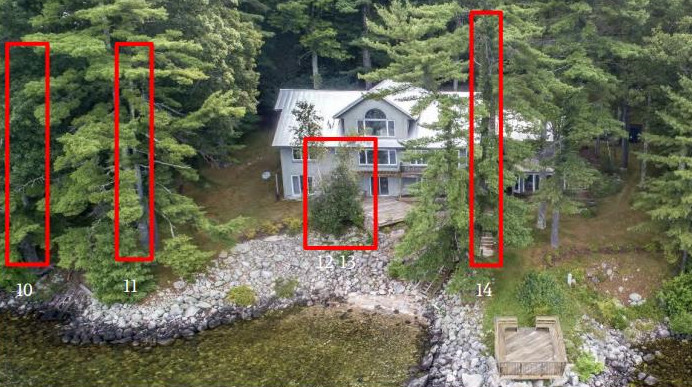
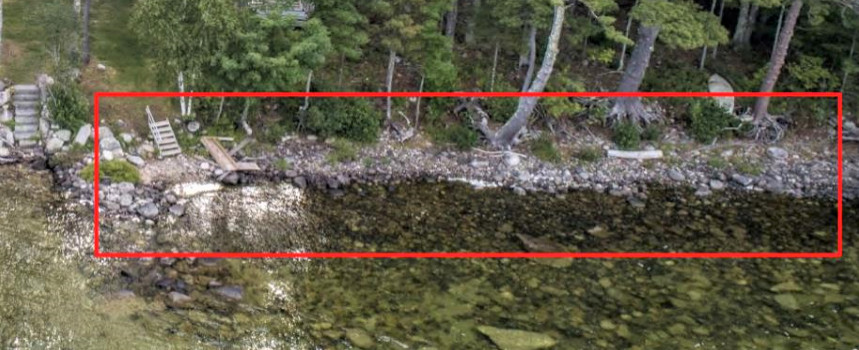

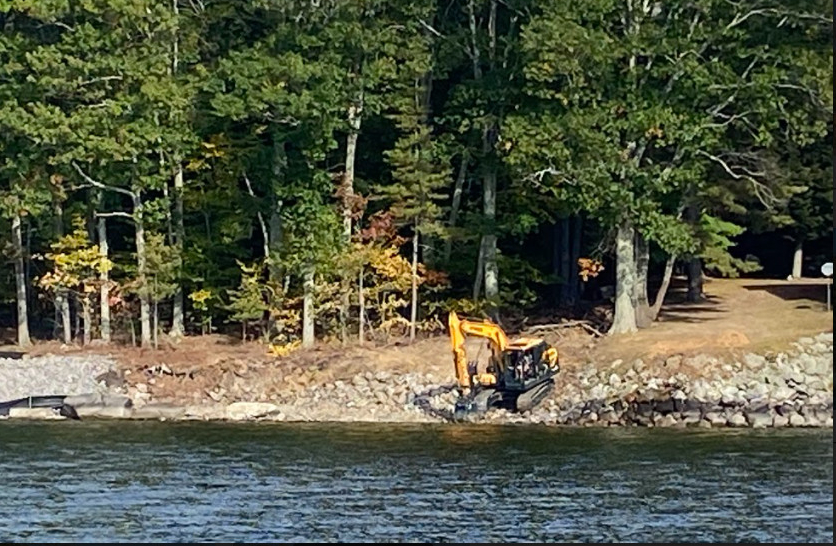
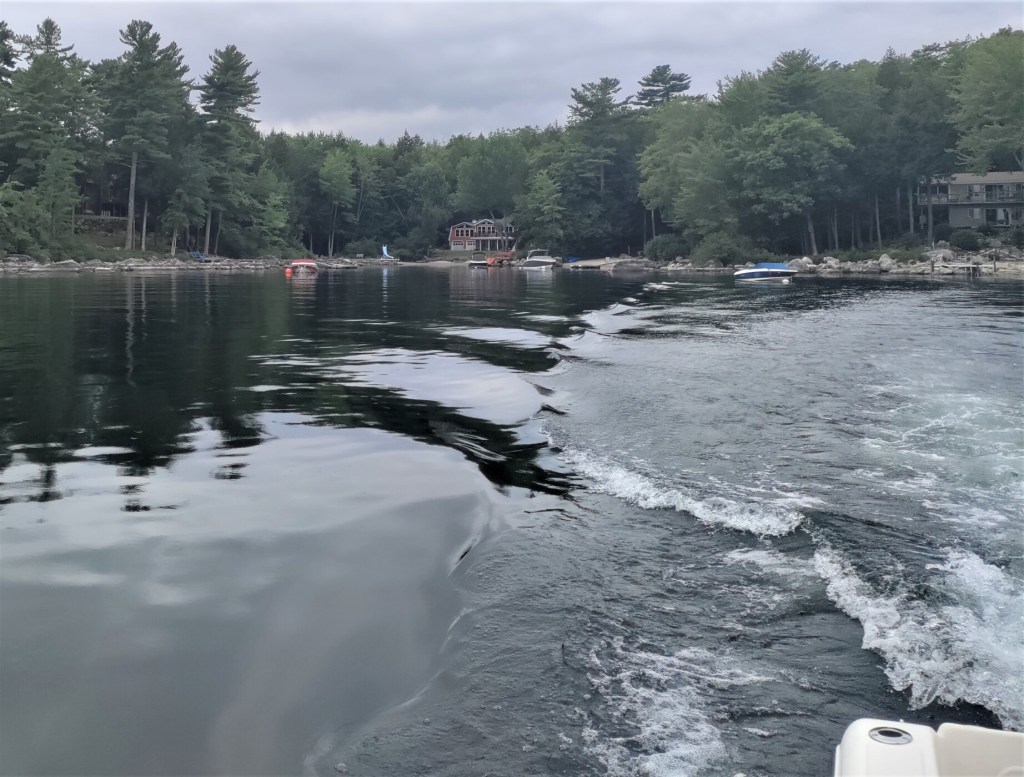


Comments are no longer available on this story